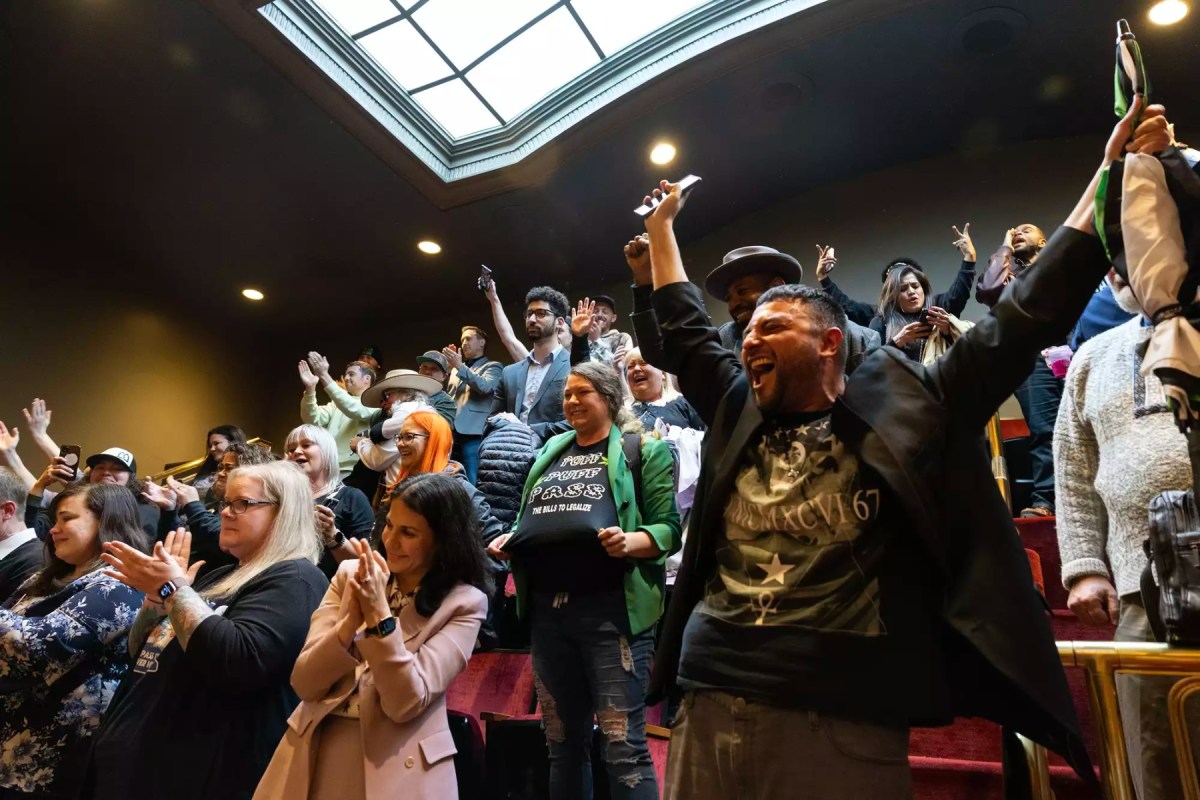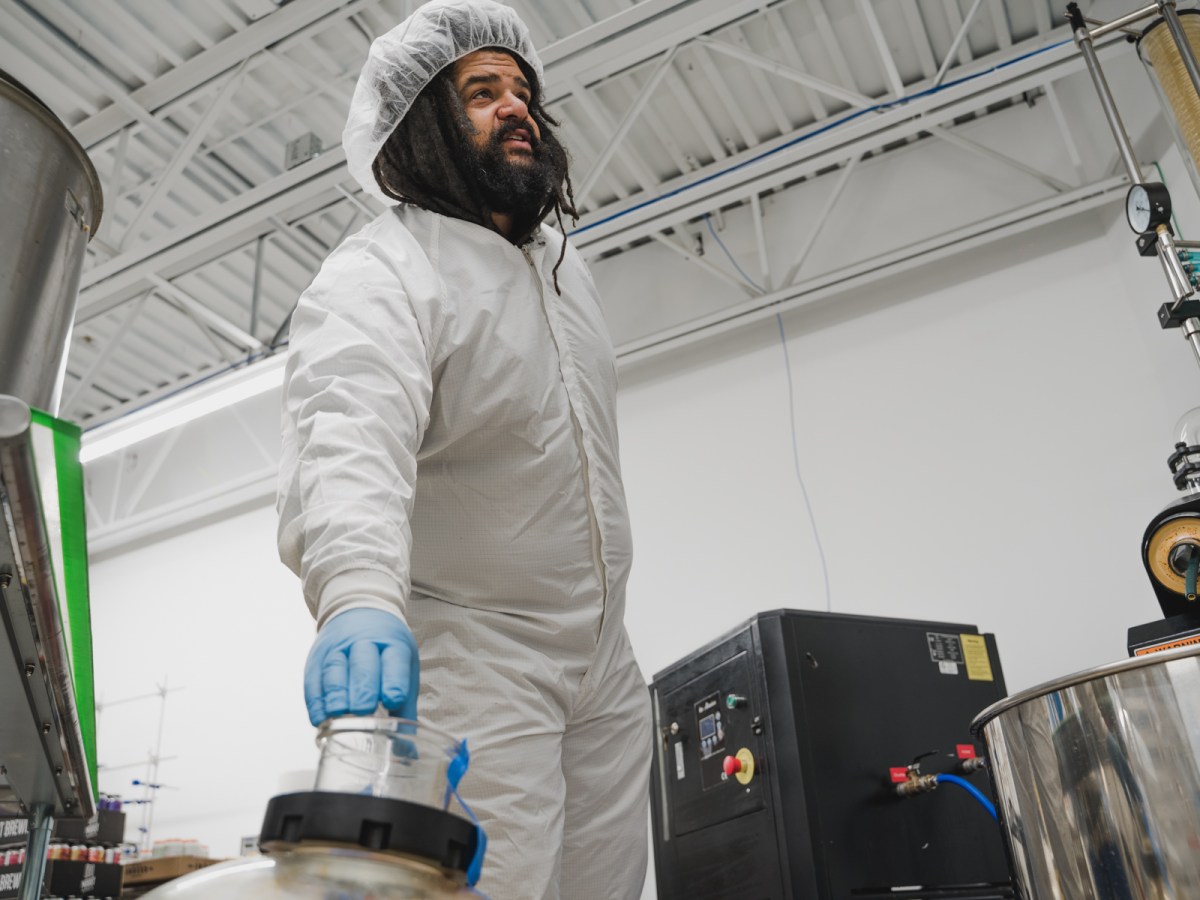This year, Minnesota’s Democratic-Farmer-Labor-controlled Legislature and Governor Tim Walz enacted a sweeping agenda on a scale not seen since the early 1970s.
They legalized recreational marijuana, created a state-run paid family leave program, legalized driver’s licenses for undocumented immigrants, and protected and expanded abortion rights.
Legislators made racial equity components central to many of these new laws.
The Legislature wasn’t the only branch of government making big moves in 2023.
Minnesota Attorney General Keith Ellison opened an investigation into potential exploitation in real estate practices involving contract-for-deed sales in the Somali and Latino communities. And government oversight on the federal level led to findings of constitutional violations against the Minneapolis Police Department after a two-year investigation by the U.S. Department of Justice.
Here are Sahan Journal’s top five local news stories of 2023:
1. Marijuana legalization.

Lawmakers finally got their chance to make Minnesota the 23rd state to legalize marijuana when the DFL took control of all levers of state government following the 2022 election.
But what made Minnesota’s eventual marijuana law stand out, according to those who helped pass it, were provisions to help rectify years of unequal enforcement of marijuana laws that fell heavily on people of color.
These include expungements of all past criminal records for marijuana-related petty misdemeanors and misdemeanors, and the creation of an expungement board to consider gross misdemeanors and felonies on a case-by-case basis. The law also offers grant programs for social equity applicants who want to start marijuana businesses, and keeps medical marijuana untaxed for patients on the state’s medical program.
It will be a while before the recreational market is up and running. Automatic expungements are expected to begin around next August, according to the state Bureau of Criminal Apprehension, and marijuana dispensaries will start operating in 2025.
2. Minnesota expanded abortion access to later pregnancy, but finding providers for the procedure may be difficult, doctor says.

One year after the U.S. Supreme Court struck down the constitutional right to abortion, Minnesota affirmed and greatly expanded its abortion rights. First, the Legislature passed a law affirming the state’s existing right to obtain an abortion, which is also protected by a 1995 state Supreme Court ruling.
Then, the Legislature dropped several restrictions to obtaining an abortion that had been in state law for the past two decades. Many of these restrictions, like a mandated 24-hour waiting period for the procedure and parental notification for 16- to 18-year-olds seeking abortions, had already been struck down by a state court in 2022.
But one of the restrictions, which barred abortions of fetuses considered “viable,” or with a 50 percent or greater chance of survival outside the womb, was still in effect until the Legislature passed its new bill this past spring. The result makes Minnesota one of just seven states in the country that explicitly allows abortions performed in the third trimester of pregnancy.
related sTORIES
But just because later pregnancy abortions can be legally performed in Minnesota doesn’t mean a provider specializing in them will set up shop immediately. Abortion rights experts and advocates told Sahan Journal that they were not currently aware of any abortion providers who want to expand to include the practice.
3. Mosque attacks and vandalism.

A troubling chain of events broke out in the Twin Cities during the first half of the year, when four mosques were attacked within a matter of four weeks.
It started in April with an attempted arson at Masjid Omar Islamic Center, located in 24 Mall in Minneapolis. There, a fire was prevented after a man was caught attempting to set one in the bathroom.
But the next day, a fire erupted at Masjid Al Rahma. A security guard discovered the fire on the building’s third floor and evacuated around 100 people.
No one was injured, but the building saw $50,000 in damage.
In May, the Oromo American Tawhid Islamic Center in St. Paul sustained extensive damage from a fire. And in that same month, a person was caught on camera throwing a chunk of concrete onto a door at Masjid As Sunnah, also in St. Paul, causing thousands of dollars in damage.
In the wake of these incidents, many in the local Muslim community responded with alarm. Local imams, for example, declared that they couldn’t meet mosque security needs.
Police named suspects in all of the incidents and made arrests in at least three. In the case of the fires at Masjid Omar Islamic Center and Masjid Al Rahma, federal authorities charged one suspect with a hate crime.
“The freedom to worship is sacrosanct,” said U.S. Attorney Andrew Luger when he announced the charges.
4. U.S. Justice Department finds ‘heartbreaking’ pattern of discrimination, excessive force at Minneapolis Police Department.

Over the summer, a long-awaited report from the U.S. Department of Justice found the Minneapolis Police Department in violation of the public’s constitutional rights, prompting court-mandated reform of Minneapolis police that could last years.
Specifically, the Justice Department found:
- Minneapolis police used excessive force, including deadly force, violating the Fourth Amendment, which protects the public from unnecessary seizure.
- They discriminated against Black and Native American people during traffic stops, violating the 1964 Civil Rights Act and the 1968 Safe Streets Act.
- They violated the First Amendment rights of people engaged in protected speech, including protesters.
- They discriminated against people with behavioral health disabilities when responding to calls for assistance, violating the Americans with Disabilities Act.
The findings stemmed from years of controversy involving the city’s police, cascading to the 2020 murder of George Floyd. U.S. Attorney General Merrick Garland announced the investigation in May 2021, one day after a court found former Minneapolis police officer Derek Chauvin guilty of murdering Floyd.
Garland called the findings “heartbreaking.” He also explained that both the city and federal governments were in agreement to enter a court-mandated consent decree to enforce reforms on the police department.
So what’s next? Minneapolis city officials and the Justice Department are still negotiating what the consent decree will ultimately look like. Once that’s done, the city will hire an independent monitor to report the progress or lack thereof in how the police department is following the consent decree.
The city has already entered into a similar consent decree for violations with the Minnesota Department of Human Rights.
5. Minnesota attorney general opens investigation into controversial contract-for-deed real estate practices.

In the fall of 2022, Sahan Journal and ProPublica published a joint investigation examining potentially exploitative real estate transactions aimed at the local Somali community.
Instead of using a conventional mortgage, the real estate practice in question involves contracts for deed, an alternative means to buy a home. In the Somali community, this can be crucial. Many homebuyers avoid conventional mortgages because their Muslim faith encourages them to not pay for or profit from interest.
Investors pitch contracts for deed as a way to buy a home and meet these religious obligations.
But such contracts lack the consumer protections that are a part of conventional mortgages. For example, homes can be sold at prices much higher than market rate, and homebuyers who default on their monthly payments can be evicted in as little as 60 days.
The Sahan Journal/Propublica investigation found a rising market in this practice and spoke to Somali homebuyers who said they didn’t understand what they were signing up for.
In October, Attorney General Keith Ellison announced that his office had opened an investigation into the matter in both the Somali and Latino communities.
As of this writing, the attorney general’s investigation is still in its early stages. We expect more news on this subject to break in the coming year.






